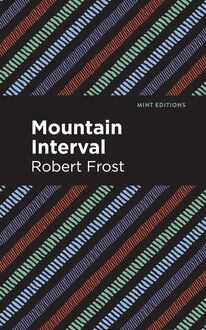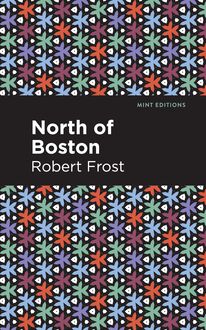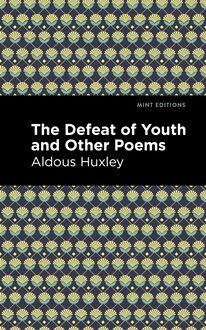-
 Univers
Univers
-
 Ebooks
Ebooks
-
 Livres audio
Livres audio
-
 Presse
Presse
-
 Podcasts
Podcasts
-
 BD
BD
-
 Documents
Documents
-
- Cours
- Révisions
- Ressources pédagogiques
- Sciences de l’éducation
- Manuels scolaires
- Langues
- Travaux de classe
- Annales de BEP
- Etudes supérieures
- Maternelle et primaire
- Fiches de lecture
- Orientation scolaire
- Méthodologie
- Corrigés de devoir
- Annales d’examens et concours
- Annales du bac
- Annales du brevet
- Rapports de stage
La lecture à portée de main
Vous pourrez modifier la taille du texte de cet ouvrage
Découvre YouScribe en t'inscrivant gratuitement
Je m'inscrisDécouvre YouScribe en t'inscrivant gratuitement
Je m'inscrisEn savoir plus
Vous pourrez modifier la taille du texte de cet ouvrage
En savoir plus

Description
“In the whole of European literature there is no poet who can furnish the texts for a more significant variety of discourse than Virgil. [He] symbolizes so much in the history of Europe, and represents such central European values…” –T.S. Eliot
The Eclogues (38 BC), also known as the Bucolics, is a work by Roman poet Virgil. Although less prominent than The Aeneid, Virgil’s legendary epic of the Trojan hero Aeneas and his discovery of what would later become the city of Rome, The Eclogues have endured as a landmark in the history of pastoral poetry. The Eclogues were inspired by the bucolic idylls of Hellenistic poet Theocritus, poems set in the rural region of Arcadia in Ancient Greece. In contrast to Theocritus, whose poems idealized agricultural life for a cosmopolitan audience based in Alexandria, Virgil’s work is grounded in the complex sociopolitical realities of its day, a time of civil war following the assassination of Julius Caesar.
“Some brutal soldier will possess these fields / An alien master. Ah! To what a pass / Has civil discord brought our hapless folk!” Displaced from his land, Meliboeus laments his fate to the farmer Tityrus, who has been fortunate enough to retain his ancestral home. Set amidst civil war, poverty, and cultural upheaval, the Eclogues vary in tone and scope from the tragic dialogue just described to a lonely shepherd crying for lost love and a singing competition held between two gifted men. In emphasizing the connection between poetry, singing, and labor, Virgil recalls the roots of written language in an older, oral tradition, restoring what has been lost—peace, land, possessions, love—in what can never be taken away. “Love conquers all things; yield we too to love!” In a time of widespread uncertainty, Virgil found solace in surrendering to the unknown while remaining certain of one eternal truth: as long as love survives, there will be songs.
With a beautifully designed cover and professionally typeset manuscript, this edition of Virgil’s The Eclogues is a classic work of Roman literature reimagined for modern readers.
Sujets
Informations
| Publié par | Mint Editions |
| Date de parution | 20 avril 2021 |
| Nombre de lectures | 1 |
| EAN13 | 9781513285306 |
| Langue | English |
| Poids de l'ouvrage | 1 Mo |
Informations légales : prix de location à la page 0,0250€. Cette information est donnée uniquement à titre indicatif conformément à la législation en vigueur.
Extrait
The Eclogues
Virgil
The Eclogues was first published in 37 BCE .
This edition published by Mint Editions 2020.
ISBN 9781513280288 | E-ISBN 9781513285306
Published by Mint Editions®
minteditionbooks.com
Publishing Director: Jennifer Newens
Design & Production: Rachel Lopez Metzger
Project Manager: Micaela Clark
Typesetting: Westchester Publishing Services
C ONTENTS E CLOGUE I. M ELIBOEUS T ITYRUS E CLOGUE II. A LEXIS E CLOGUE III. M ENALCAS D AMOETAS P ALAEMON E CLOGUE IV. P OLLIO E CLOGUE V. M ENALCAS M OPSUS E CLOGUE VI. T O V ARUS E CLOGUE VII. M ELIBOEUS C ORYDON T HYRSIS E CLOGUE VIII. T O P OLLIO D AMON A LPHESIBOEUS E CLOGUE IX. L YCIDAS M OERIS E CLOGUE X. G ALLUS
Eclogue I
M ELIBOEUS T ITYRUS
M ELIBOEUS: You, Tityrus, ’neath a broad beech-canopy
Reclining, on the slender oat rehearse
Your silvan ditties: I from my sweet fields,
And home’s familiar bounds, even now depart.
Exiled from home am I; while, Tityrus, you
Sit careless in the shade, and, at your call,
“Fair Amaryllis” bid the woods resound.
T ITYRUS: O Meliboeus, ’twas a god vouchsafed
This ease to us, for him a god will I
Deem ever, and from my folds a tender lamb
Oft with its life-blood shall his altar stain.
His gift it is that, as your eyes may see,
My kine may roam at large, and I myself
Play on my shepherd’s pipe what songs I will.
M ELIBOEUS: I grudge you not the boon, but marvel more,
Such wide confusion fills the country-side.
See, sick at heart I drive my she-goats on,
And this one, O my Tityrus, scarce can lead:
For ’mid the hazel-thicket here but now
She dropped her new-yeaned twins on the bare flint,
Hope of the flock—an ill, I mind me well,
Which many a time, but for my blinded sense,
The thunder-stricken oak foretold, oft too
From hollow trunk the raven’s ominous cry.
But who this god of yours? Come, Tityrus, tell.
T ITYRUS: The city, Meliboeus, they call Rome,
I, simpleton, deemed like this town of ours,
Whereto we shepherds oft are wont to drive
The younglings of the flock: so too I knew
Whelps to resemble dogs, and kids their dams,
Comparing small with great; but this as far
Above all other cities rears her head
As cypress above pliant osier towers.
M ELIBOEUS: And what so potent cause took you to Rome?
T ITYRUS: Freedom, which, though belated, cast at length
Her eyes upon the sluggard, when my beard
’Gan whiter fall beneath the barber’s blade—
Cast eyes, I say, and, though long tarrying, came,
Now when, from Galatea’s yoke released,
I serve but Amaryllis: for I will own,
While Galatea reigned over me, I had
No hope of freedom, and no thought to save.
Though many a victim from my folds went forth,
Or rich cheese pressed for the unthankful town,
Never with laden hands returned I home.
M ELIBOEUS: I used to wonder, Amaryllis, why
You cried to heaven so sadly, and for whom
You left the apples hanging on the trees;
’Twas Tityrus was away. Why, Tityrus,
The very pines, the very water-springs,
The very vineyards, cried aloud for you.
T ITYRUS: What could I do? how else from bonds be freed,
Or otherwhere find gods so nigh to aid?
There, Meliboeus, I saw that youth to whom
Yearly for twice six days my altars smoke.
There instant answer gave he to my suit,
“Feed, as before, your kine, boys, rear your bulls.”
M ELIBOEUS: So in old age, you happy man, your fields
Will still be yours, and ample for your need!
Though, with bare stones o’erspread, the pastures all
Be choked with rushy mire, your ewes with young
By no strange fodder will be tried, nor hurt
Through taint contagious of a neighbouring flock.
Happy old man, who ’mid familiar streams
And hallowed springs, will court the cooling shade!
Here, as of old, your neighbour’s bordering hedge,
That feasts with willow-flower the Hybla bees,
Shall oft with gentle murmur lull to sleep,
While the leaf-dresser beneath some tall rock
Uplifts his song, nor cease their cooings hoarse
The wood-pigeons that are your heart’s delight,
Nor doves their moaning in the elm-tree top.
T ITYRUS: Sooner shall light stags, therefore, feed in air,
The seas their fish leave naked on the strand,
Germans and Parthians shift their natural bounds,
And these the Arar, those the Tigris drink,
Than from my heart his face and memory fade.
M ELIBOEUS: But we far hence, to burning Libya some,
Some to the Scythian steppes, or thy swift flood,
Cretan Oaxes, now must wend our way,
Or Britain, from the whole world sundered far.
Ah! shall I ever in aftertime behold
My native bounds—see many a harvest hence
With ravished eyes the lowly turf-roofed cot
Where I was king? These fallows, trimmed so fair,
Some brutal soldier will possess these fields
An alien master. Ah! to what a pass
Has civil discord brought our hapless folk!
For such as these, then, were our furrows sown!
Now, Meliboeus, graft your pears, now set
Your vines in order! Go, once happy flock,
My she-goats, go. Never again shall I,
Stretched in green cave, behold you from afar
Hang from the bushy rock; my songs are sung;
Never again will you, with me to tend,
On clover-flower, or bitter willows, browse.
T ITYRUS: Yet here, this night, you might repose with me,
On green leaves pillowed: apples ripe have I,
Soft chestnuts, and of curdled milk enow.
And, see, the farm-roof chimneys smoke afar,
And from the hills the shadows lengthening fall!
Eclogue II
A LEXIS
The shepherd Corydo
-
 Univers
Univers
-
 Ebooks
Ebooks
-
 Livres audio
Livres audio
-
 Presse
Presse
-
 Podcasts
Podcasts
-
 BD
BD
-
 Documents
Documents
-
Jeunesse
-
Littérature
-
Ressources professionnelles
-
Santé et bien-être
-
Savoirs
-
Education
-
Loisirs et hobbies
-
Art, musique et cinéma
-
Actualité et débat de société
-
Jeunesse
-
Littérature
-
Ressources professionnelles
-
Santé et bien-être
-
Savoirs
-
Education
-
Loisirs et hobbies
-
Art, musique et cinéma
-
Actualité et débat de société
-
Actualités
-
Lifestyle
-
Presse jeunesse
-
Presse professionnelle
-
Pratique
-
Presse sportive
-
Presse internationale
-
Culture & Médias
-
Action et Aventures
-
Science-fiction et Fantasy
-
Société
-
Jeunesse
-
Littérature
-
Ressources professionnelles
-
Santé et bien-être
-
Savoirs
-
Education
-
Loisirs et hobbies
-
Art, musique et cinéma
-
Actualité et débat de société
- Cours
- Révisions
- Ressources pédagogiques
- Sciences de l’éducation
- Manuels scolaires
- Langues
- Travaux de classe
- Annales de BEP
- Etudes supérieures
- Maternelle et primaire
- Fiches de lecture
- Orientation scolaire
- Méthodologie
- Corrigés de devoir
- Annales d’examens et concours
- Annales du bac
- Annales du brevet
- Rapports de stage




















